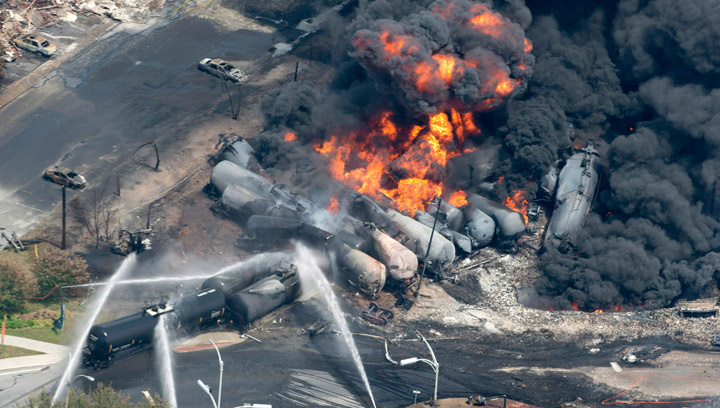WASHINGTON – Responding to a series of fiery train derailments, federal regulators said Wednesday they will propose that trains transporting crude oil have at least two-man crews as part of new requirements aimed at preventing parked train cars from coming loose and causing an accident like one in Lac-Megantic, Que. that killed 47 people.

READ MORE: Lack of rail safety data leaving Canada at risk for future incidents: report
The Federal Railroad Administration had asked a freight rail industry advisory committee to make recommendations on whether two-man crews should be required, but the industry officials were unable to reach a consensus. Federal officials said they decided to move ahead with the two-crew member requirement anyway.
“We believe that safety is enhanced with the use of a multiple person crew – safety dictates that you never allow a single point of failure,” Joseph Szabo, head of the railroad administration, said in a statement.
While existing federal regulations don’t address how many crew members freight trains must have, the general practice among the largest freight railroads is to have a minimum of two crew members for trains while in service. However, that isn’t always the case for regional and short-line railroads.
READ MORE: Transport Canada hasn’t implemented rail safety recommendations
The crew proposal was prompted by an accident last July in the town of Lac-Megantic. A train transporting oil from the Bakken region of North Dakota was left unattended by its lone crew member while parked near the town. The train came loose and sped downhill into Lac-Megantic. More than 60 tank cars derailed and caught fire, and several exploded, killing 47 people and destroying much of the town.
READ MORE: Crude oil spills are bigger from trains than pipelines

Comments